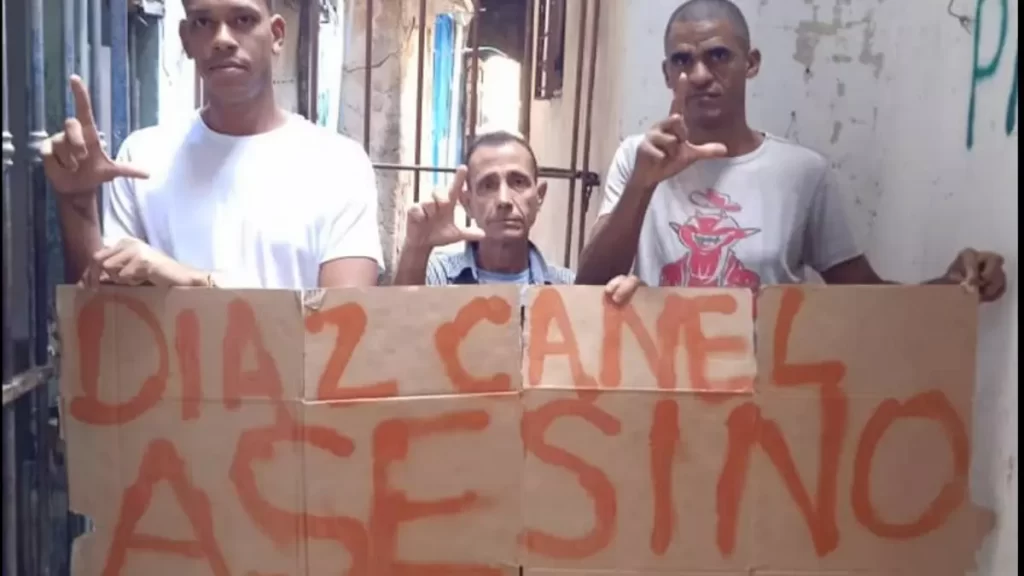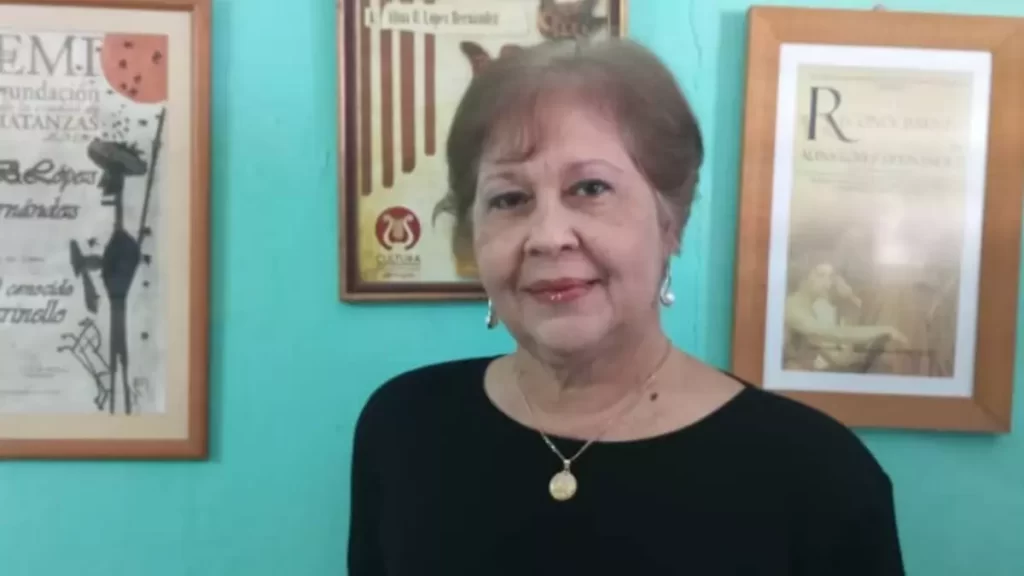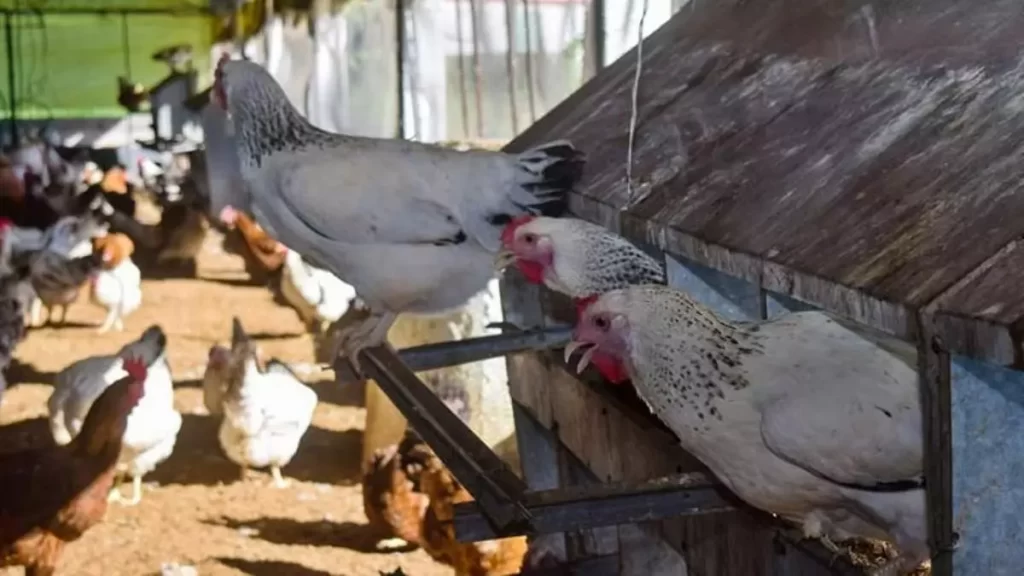
![]() 14ymedio, Francis Matéo, Barcelona 13 July 2024 — “La Habana, Santa Clara, Holguín, Santiago, Palma Soriano, Camagüey, Las Tunas, Pinar del Río, Alquízar…”
14ymedio, Francis Matéo, Barcelona 13 July 2024 — “La Habana, Santa Clara, Holguín, Santiago, Palma Soriano, Camagüey, Las Tunas, Pinar del Río, Alquízar…”
Dianelys lists the cities through which the shock wave has spread since yesterday, caused by the first demonstration in San Antonio de los Baños, southwest of the Cuban capital. She is twenty years old, smiles and repeats the slogan that has been around the island for 24 hours, as the rallies progress:
Patria y vida! (Homeland and life!).
Homeland and life! Those are the words of the young that play to turn around the old revolutionary antiphon “homeland or death,” emptied of its meaning during the decades of Castro’s dictatorship and represented today by the sad look of President Miguel Díaz-Canel, a kind of “statue of the commander” sculpted in the Soviet way and placed at the head of the State by Raúl Castro, the last avatar of autocratic power. A president who has become the target of ridicule, who is called “singao”(motherfucker) in the joyful protest processions from Pinar del Río to Santiago de Cuba… as today in the streets of La Güinera, where Dianelys also uses the fashionable insult:
“Díaz-Canel, singao!”*
The adjective, typically Cuban, has become the title of a song and a refrain among the outraged; against an ambushed power.
Among the protesters of all ages in the popular neighborhood of La Güinera, few heard Miguel Díaz-Canel last night. Almost no one bothered to turn on the TV to pretend to listen to official speeches, as in Fidel Castro’s time. And very few care about the surveillance and the snitches’ reports, remotely controlled by the state police – in each block or building – to denounce the suspicious actions of their neighbors. This organization of theCommittees for the Defense of the Revolution, created in the regime’s early years based on the model of Robespierre’s general security committees, has now run aground on the rocks of scarcity. “All united,” as the national poet and liberator of the homeland José Martí said, but in the galley of hardship. continue reading
Almost no one bothers to turn on the TV to pretend to listen to official speeches, as in Fidel Castro’s time.
However, there are still a few stubborn people who defend the piece of bone that the Castro revolution has become and who try to make life even worse in their neighborhoods (in exchange for a measly compensation from the Party). These last defenders of a dying regime, which only has the brute force of its truncheon left to sustain itself, were loyal to the presidential speech in front of the TV set last night; they listened attentively to Miguel Díaz-Canel’s threats in response to the demonstrations that took place throughout the country that day. As usual, the president spoke in a crude wooden language and with a monotonous tone that leaves no room for feelings, let alone empathy:
“Unfortunately, I have to interrupt this Sunday to inform you that provocative elements have acted intending to promote the counterrevolution. They want to create incidents to justify our intervention. Let there be no doubt: they will have to pass over our dead bodies if they want to face the Revolution. That is why we call on all revolutionaries in the country, all communists, to take to the streets where these provocations take place. We will not allow anyone to manipulate and impose an annexationist plan. The order is this: revolutionaries, take to the streets!”
Dianelys did not hear Miguel Díaz-Canel’s call for confrontation. Since yesterday, she has been glued to her mobile phone, where she has never received so many messages about the political situation. In fact, she feels that she is waking up, that an entire people has woken up after two years of extremely drastic health [covid-related] restrictions. The young woman hugs a friend who has just joined the group of protesters; they hug, laugh and dance to the sound of reggaeton, whose saturated sizzles escape through the open door of a house. Diubis Laurencio Tejeda approaches them to record them with his phone. The two girls hug again, frantically moving their backs to the beat of the music, and then jump and scream:
“Record, Pikiri, record! We are not afraid! We are not afraid!
Diubis refrains from joining the girls’ hugs to focus on his video. He wants to preserve these unique moments to share on his social media. Around him, the protesters are infected by the energy of Dianelys and her friend. They sing together:
“We are not afraid! We are not afraid!”
Diubis turns around, phone in hand and arm outstretched to film the entire scene in a dizzying journey. He catches himself shaking, overwhelmed by emotion. He hears his artist name again:
“Piki! ¡Piki Rapta!”
He feels that he is waking up, that an entire town has woken up after two years of extremely drastic sanitary restrictions.
It is a young neighbor of sixteen years old, Yoel Misael Fuentes, who smiles at him, extending his arms as if to capture the immense feeling of joy of a crowd surprised and happy at the same time for being united in the vindication of what they lack most: freedom.
Like all the children of La Güinera, Yoel is a fan of the reggaeton songs by Diubis Laurencio Tejeda, alias Piki Rapta. At thirty-six, Diubis enjoys this little notoriety without getting carried away, but not without a certain pleasure that oozes in the way this casual braggart walks, which seduces girls and arouses the admiration of his friends. He cultivates a kind of dandy distancing that draws attention to his ebony skin, slender figure, and enticing smile.
Sensing that it would be a special day, today he has carefully chosen his clothes, although the selection is too limited for his taste. ” What do you want? You’re in Cuba, man! You have to get by with what you don’t have. ” With his sense of humor and his black Zara shirt studded with small white flowers, his jeans and his Levi’s sneakers, both dark, Diubis went out this afternoon to mingle curiously with the group of protesters. Among them, he recognizes several who are his regular customers.
The young reggaeton singer makes a living selling basic products that he has bought faster than others in official stores or that friends have sent him from abroad, as many Cubans do to survive. On the screen of his old iPhone, he sees Iris, a neighbor of his block, pouncing on him as soon as she sees him:
“Hi Piki! Could you get me some shampoo? Could you get me some shampoo? I look like a witch!”
“But that’s what I always say, honey: watch out for appearances, because they’re often true. I’m not sure you’re any less of a witch, but I’ll try to bring this to you tomorrow. ”
“You’re the best !”
The first round produces shock, the second imposes silence, the third and the fourth leave no doubt about the origin of the shots
Iris returns to the heart of the demonstration. Diubis continues to film her as he follows her, walks across the crowd and stands a few meters ahead of the group to get a general view. He stops the recording for one second to check the time on the screen: 17:57 hours. He immediately resumes the video with a panoramic view of the gathering, which becomes even denser and louder:
“We are not afraid! Homeland and life! Díaz-Canel, motherfucker!”
Then he approaches the group. He also wants to enjoy the party a little, to share with others this emotion of freedom, in the middle of the crowd that walks up Calzada Guinera.
Meanwhile, two police cars drive along a parallel road to take up positions on First Street. The cars stop at the crossing. Four armed officers get off and begin to block the passage between Calzada Guinera and the Main lane, forcing a candy pink Buick to turn around; the driver does not protest but seems worried about a gelatinous and fluorescent cake in the co-pilot’s seat. The police, under the orders of officer Yoennis Pelegrín Hernández, unexpectedly cut off thirty protesters who continue to advance unsuspectingly to the rhythm of their slogans against the regime. Some of them do not even have time to see the officers, about 35 meters away, when the shooting breaks out.
The first round produces shock, the second imposes silence, and the third and the fourth leave no doubt about the origin of the shots. Yoennis Pelegrín Hernández empties the twelve bullets from his magazine as people scream. A woman flees shouting at him:
” You hit someone!”
At the end of the street, the policeman holds his gun in his hand, a twelve-shot Makarov pistol whose magazine is now empty. He looks aghast as if he doesn’t really see the spectacle of terror he has caused by firing savagely at the protesters.
As if he did not have anything to do with the tragedy that befell Diubis Laurencio Tejeda. The bullet entered his back and went through his lungs until it reached his heart.
The young man has collapsed, face down, but he is still alive. On his shoulder, the bloodstain soaks into the drawings of small white flowers
The young man has collapsed, face down, but he is still alive. On his shoulder, the blood stain soaks the drawings of small white flowers; a man takes off his shirt to try to contain the bleeding. Two others desperately lift him and take him to one of the police cars, the only way to urgently transfer the injured man to the hospital. A few meters away, Yoel is also bent over at the foot of a wall, his pants stained with blood. One of the twelve bullets fired by Yoennis Pelegrín Hernández shattered his right knee. He is in pain, but panic prevents him from uttering the smallest intelligible word. He recognizes Dianelys, who passes by screaming:
They killed Diubis!”
Another protester grabs his head and yells at the police:
“Murderers! Why did you shoot? Nobody did anything! You guys are crazy.”
Yoel screams in pain amid the chaos on Calzada.
Calzada Guinera is now flanked by police cars. The teen sees three armed and uniformed men approaching. He closes his eyes as if he wanted to drive away fear and pain, he feels himself being lifted and pushed without mercy to the back seat of a flashing Lada.
In another vehicle, Diubis bleeds to death. He loses consciousness even before arriving at the hospital. He’ll never wake up.
After having made almost all the protesters get into the police vans – except for those who were able to escape in time – Yoennis Pelegrín Hernández gets back behind the wheel of his car, starts it and drives in the direction of the police station with the sirens blaring. He has to write a report.
*Translator’s note: ‘singao’ roughly rhymes with ‘Díaz-Canel’
Translated by LAR















